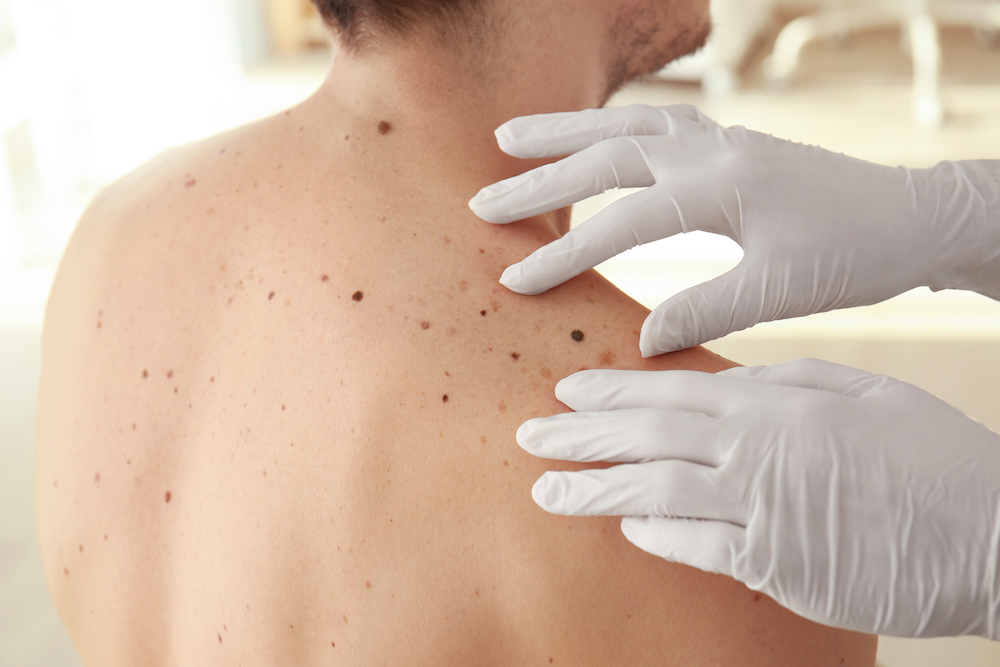Preventative Cancer Screenings Matter for All Types of Cancer

As we approach Breast Cancer Awareness Month, dermatologists across the nation are seizing the opportunity to remind people that all cancers are better diagnosed early, including skin cancer. Some of the most reputable licensed dermatologists in the country make skin cancer screening part of their services, recognizing that skin cancer affects more than 9,500 new patients daily. More than 3 million Americans a year are diagnosed with some form of skin cancer, and preventative cancer screenings are one way to make sure anyone that needs treatment can receive it.
Self-Exams and Skin Cancer Screenings
Since 1 in 5 Americans will have a skin cancer diagnosis at some point in their life, early detection is key to identifying and treating skin cancer. Skin cancer is treatable and curable. Between professional skin cancer screenings from a dermatologist and self-exams, skin cancers can be found early and addressed. Dermatologists who offer skin cancer screening services provide clients the highest level of care, with experience examining moles, growths, and other concerning skin abnormalities.
An annual exam with a licensed dermatologist is recommended since sometimes signs of skin cancer may not be visible when looking in the mirror. A board-certified dermatologist will do a thorough body exam, from scalp to toes, to ensure no area of skin is missed that may have signs of skin cancer. History and information will also be gathered for the patient file to ensure any factors that may place them at higher risk are considered in a thorough diagnosis.
What Puts Patients at Higher Risk for Skin Cancer
Dermatologists consider several things when examining and diagnosing a patient for skin cancer. History of severe burns, changing and unusual moles on the body, tanning bed activity, family history of skin cancer, excessive mole count on the body, organ transplant patients, and fair skin may be factors that increase a patient’s likelihood of having some form of skin cancer in their life. This does not mean that every fair skin person will get skin cancer, but it does mean that the more factors one client has, the higher risk they are.
Advanced Technology Allows Dermatologists to Diagnose Skin Cancer
After the interview and exam, suspicious skin tissues will be biopsied. The tissue is then carefully examined under a microscope, and this helps diagnose skin cancer. Exceptional dermatology offices will offer clients something to numb the area for the biopsy, so there is little or no discomfort during this simple, quick, and in-office procedure.
Today’s advanced technology is serving as an incredible tool for dermatologists to accurately diagnose skin cancer, which makes discussing and choosing treatment much more straightforward than previously. There are many options, and a professional will work with each client to give them the treatment they need in a plan that works for them. Licensed dermatologists successfully treat non-cancerous and cancerous skin safely.
What Are Dermatologists Looking for in a Skin Cancer Screening?
Although it may seem like it goes quickly, skin cancer screening is very specific as trained and licensed dermatologists know precisely what to look for. Their experience allows them to identify concerns beyond normal skin conditions, and many use the ABCDE mole examination. This screening is when a professional examines skin growths or moles to determine if they warrant a biopsy. Symmetry is normal in moles, so if a mole is not symmetrical, this may require a biopsy to rule out skin cancer. The edges of a mole or skin growth should also be uniform, and uneven or jagged edges may indicate skin cancer. Dermatologists will also look for any spotting on the mole, and white and blue spots should be biopsied. Size matters and large moles will almost always be biopsied as precautionary. One question that every patient will be asked is if the mole or skin growth has changed. Changes indicate possible skin cancer and should be checked out and biopsied. It is always better to be safe than wait and risk skin cancer worsening or becoming more serious.
If you live in Atlanta or are in the area frequently, visiting Buckhead Dermatology will be something you will not regret. Dr. Sherrie Straughn has provided clients with exceptional skin cancer screenings and other dermatology treatments for 30 years. Offering new technology treatments to skin cancer patients, every patient gets exactly what they need from Dr. Straughn. As a compassionate and professional dermatologist, it would be challenging to get better dermatology services.
If you have never done a skin cancer screening, please schedule one today. Please find a local and reputable dermatologist; these screenings are often covered by insurance because of their preventative nature. If you have questions about skin cancer screenings and treatment, don’t hesitate to contact someone with experience who can communicate the process and the benefits and offer solutions.
